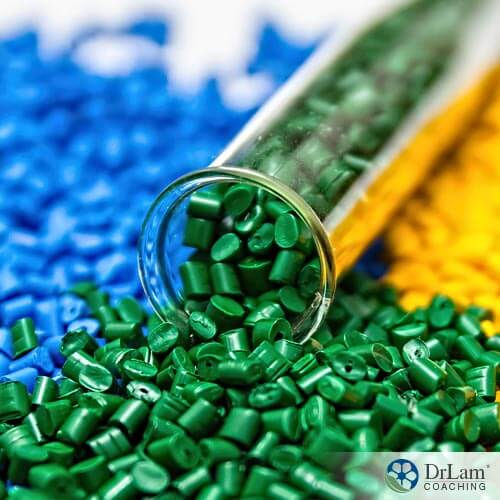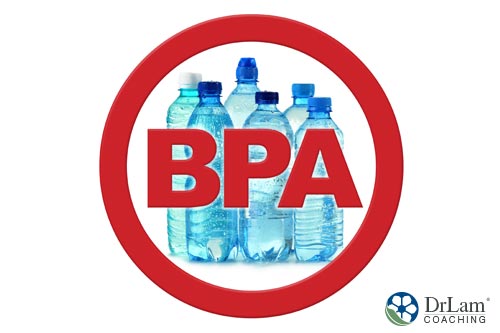 Bisphenol-A (BPA) is an industrial chemical that finds its way into the food you eat through many commercial products, particularly hygiene products and food packaging. BPA effects on health have been the topic of much controversy the last several years, and its use has been discussed by the FDA and its European counterpart. The FDA’s current stance is that BPA is safe in the current levels found in our food. However, this raises the question: is BPA still bad for your health? At what levels? We will be taking a look at BPA effects a little later, but first, a little about its history and use.
Bisphenol-A (BPA) is an industrial chemical that finds its way into the food you eat through many commercial products, particularly hygiene products and food packaging. BPA effects on health have been the topic of much controversy the last several years, and its use has been discussed by the FDA and its European counterpart. The FDA’s current stance is that BPA is safe in the current levels found in our food. However, this raises the question: is BPA still bad for your health? At what levels? We will be taking a look at BPA effects a little later, but first, a little about its history and use.
Although it was first discovered in 1891 by a Russian chemist, it was not until the 1950’s that scientists realized BPA, when mixed with different compounds, produced polycarbonate plastics that were both strong and resilient. Many plastics contain BPA, from food containers to baby bottles. BPA is also used to make the epoxy resins that go on the inner lining of food cans to stop the metal from corroding while protecting the food from any contact with the metal itself.
BPA may be found in the following products, amongst many others:
Due to food being in direct with any packaging material, small amounts of the packaging contents could migrate into your food and be consumed by you. This has resulted in a heightened public awareness of BPA in general, and BPA effects on our health in particular. Scientific interest has also been awakened, and numerous scientific studies have been carried out on BPA effects.
 Due to public and scientific debate with regards to this issue, the National Toxicology Program has partnered with the FDA’s National Center for Toxicological Research and are carrying out in-depth studies in order to ascertain BPA effects on our health. Although their research is still continuing, the general consensus thus far is that the overall amounts ingested are deemed negligible when it comes to our health situation.
Due to public and scientific debate with regards to this issue, the National Toxicology Program has partnered with the FDA’s National Center for Toxicological Research and are carrying out in-depth studies in order to ascertain BPA effects on our health. Although their research is still continuing, the general consensus thus far is that the overall amounts ingested are deemed negligible when it comes to our health situation.
The FDA has, however, amended its stance on the use of BPA’s in the manufacture of baby bottles and in the use of BPA epoxy resins as a coating for baby formula packaging. Numerous manufacturers have also, due to the increasing interest in BPA effects, replaced BPA with other chemicals in their manufacturing process. Most notable amongst these are bisphenol-S (BPS) and bisphenol-F (BPF). These chemicals, however, are very similar in structure to BPA and may have their own set of health effects. Even if the label says BPA-free, companies can use similar compounds like BPS and BPF in their products and get away with it.
Research indicates the following possible BPA effects on our health.
A study conducted on baby rats indicated that BPA exposure affected a particular protein immediately prior to and after birth. It caused them to be less tolerant of this particular protein later in their lives. When they were later exposed to this protein as well as BPA at a later date, an increased occurrence of colonic inflammation and an increased level of immune activity was observed.
Interestingly, the World Health Organization (WHO) reported that breastfed babies had BPA levels that were eight times lower than in those that were fed formula by means of baby bottles containing BPA.
Because of rats showing a heightened intolerance to certain foods in a French study on BPA effects, France banned the use of BPA in food containers in 2013, followed by all food packaging two years later.
A number of studies indicate that BPA may disrupt your endocrine system. Apparently, it may have the ability to mimic some of your body’s hormones, thereby interfering with normal hormone production, transport, function, and elimination.
Some studies show that BPA may affect hypothalamus and pituitary gland function, two essential components of the hypothalamic-pituitary-adrenal (HPA) axis that plays a large role in your body’s NeuroEndoMetabolic (NEM) Stress Response - your body’s natural reaction when encountering stress. This could have a profound effect on those suffering from adrenal fatigue.
Studies also suggest that BPA exposure could affect egg maturation in females, while also affecting puberty, ovulation, and fertility. Males may find that BPA effects could include impotence, an increased risk of erectile dysfunction, and ejaculation issues.
 Studies indicate that even low-level BPA exposure during the first trimester of pregnancy may affect the development of the area of the brain associated with fear, obesity, early puberty, and impulse control. It may do this by altering neuron development within the brain’s hypothalamus, resulting in the brain not being ‘wired’ correctly. The end result may be the development of behavioral issues and other problems later in a child’s life.
Studies indicate that even low-level BPA exposure during the first trimester of pregnancy may affect the development of the area of the brain associated with fear, obesity, early puberty, and impulse control. It may do this by altering neuron development within the brain’s hypothalamus, resulting in the brain not being ‘wired’ correctly. The end result may be the development of behavioral issues and other problems later in a child’s life.
According to data collected, it would seem that the portion of the population with the highest BPA levels had a higher risk of developing heart conditions than those with the least BPA in their systems. Studies seem to affirm this, as higher BPA levels in urine may indicate various heart-related conditions, such as angina, hypertension, heart attack, and coronary and peripheral arterial disease.
Studies indicate that BPA exposure while young may have an effect on you as you get older. Most notably, it may affect your liver and its oxidative process, resulting in fatty liver or even liver cancer. This is mainly because BPA has the ability to reprogram DNA and influence the endocrine system’s hormone production and function. The latter may result in obesity issues when older, while BPA’s gene reprogramming ability may lead to non-alcoholic cirrhosis of the liver which is quite prevalent in those who suffer from diabetes, obesity, or high cholesterol levels.
Your body’s detoxification circuit function is strongly linked to its NEM Stress Response system. The detoxification circuit is made up of the interstitium, liver, and immune system. Its main function is to rid your body of all toxins present. A buildup of toxins, however, especially when the body is in a state of stress, may cause dysfunction of your detoxification circuit, with a number of possible symptoms that could potentially be devastating. BPA effects are slow in showing in your body, and the associated symptoms may take years to manifest.
Some of the common symptoms associated with a detoxification system that is compromised include:
 Although toxin exposure may be part of our daily life, toxins like BPA are especially concerning because they get into our system when ingested via our food, due to exposure to the plastics that are used in the manufacture of many of our appliances, and even invitro or immediately after being born.
Although toxin exposure may be part of our daily life, toxins like BPA are especially concerning because they get into our system when ingested via our food, due to exposure to the plastics that are used in the manufacture of many of our appliances, and even invitro or immediately after being born.
People suffering from adrenal fatigue may be more at risk when it comes to the BPA. It may even contribute to the condition itself due to its effect on hormones, and its action at a cellular level. This is because someone with adrenal fatigue, especially during the latter stages, may have a compromised immune system and suffer from numerous health issues, making the body vulnerable to the effects of additional toxins.
Traditionally, healers in western medicine may try an aggressive approach when a detoxification system becomes compromised. They may suggest antidepressants, sleep medications, anti-inflammatory drugs, proton pump inhibitors in the case of gastric issues, hormone replacement therapy, immunosuppressants, steroids, or a list of others in an effort to treat the various symptoms. You may find that many of your symptoms appear to improve at first, but worsen in the long run due to side effects, your body’s own intolerance, or because your body builds up a resistance to the medications, thus making them less effective.
Fully understanding the cause of your symptoms and addressing that particular issue is a time-consuming process. Many times BPA effects may not even be considered. Your body’s weakened condition may also not allow it to properly function in order to deal with the medications or to get rid of the toxins causing the issue. Summarily doing a detox may, in fact, even leave you feeling worse than before.
Thus, the best approach is often to seek out an alternative medicine practitioner who is capable of taking a thorough and detailed history to completely understand your unique situation, before attempting various medications, in order to come to an understanding of the root of the problem.
Right now, the evidence of BPA effects is conflicting, with the FDA and other government bodies saying BPA is relatively safe, while other studies seem to show that it is not. Prevention, however, is always better than the cure.
Firstly, you can try and minimize your BPA exposure as much as possible by cutting products encased in clear plastic out of your life as much as possible. Try to stay away from plastic products and canned food. Be aware that the label “BPA-free” doesn’t necessarily mean BPS or BPF free. Eat organic, avoid other toxins, and try to cook real food at home.
Also, you can take steps to help your body rid itself of BPA. You can try sweating a little. This you can do by walking regularly, doing some yoga, or having a luxurious steam bath. Sweating is a great, natural way of getting rid of toxins.
Adrenal fatigue is a condition that develops over time, and a number of factors that contribute to its development. BPA effects may be one of the contributing factors, as it affects your body’s hormonal and detoxification circuits. Both these circuits become compromised in a person suffering from the condition.
